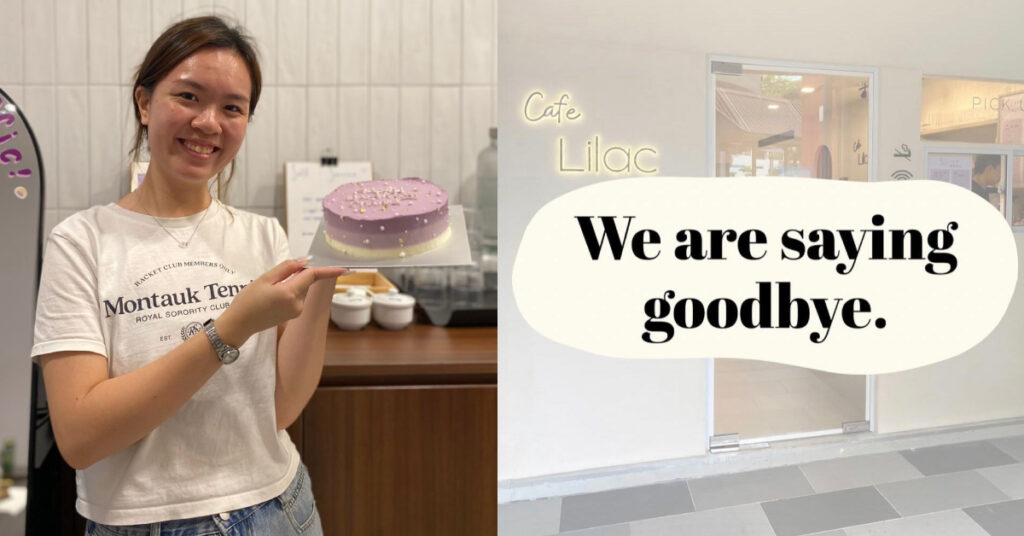Characterised by her signature cheongsam and delicately coiffed hair, Chew Gek Khim sits on the list of Singapore’s most powerful tycoons.
She is the 29th richest person in Singapore with a net worth of at least US$1.26 billion.
The billionaire was also the first woman in over a decade to win Singapore’s Businessman Of The Year in 2014.
In 2008, Chew single-handedly orchestrated the takeover and revitalisation of a century-old tin-smelting company once helmed by her grandfather and OCBC magnate Tan Chin Tuan.
Here’s how the self-professed “sheltered” child build her billion-dollar fortune.
The Granddaughter Of A Key Financial Leader
Chew Gek Khim was born as the granddaughter of one of Singapore’s top financial leaders, Tan Chin Tuan.

Tan was best known for his instrumental role in turning the Overseas-Chinese Banking Corporation (OCBC) into one of Asia’s leading financial institutions.
He was among the key figures involved in its subsequent merger with Ho Hong Bank and Overseas Chinese Bank to form OCBC in 1932.
Tan rapidly rose through the ranks to become the director of OCBC, playing a pivotal role in the expansion of the firm for over 50 years.
He was also a well-known philanthropist known for supporting lifelong education, donating over S$250,000 each year to the engineering exchange programme at Nanyang Technological University.
Growing up in her family mansion on Cairnhill Road, Chew recounts a happy childhood spent living in abundance.
Despite her grandfather’s status as one of Singapore’s elite figures, she saw Tan as a family man and the “patriarch” of the family.

After graduating from the National University of Singapore, Chew earned a degree in law and worked at Drew and Napier for three years before leaving to join her family’s investment group, Tecity.
Sources state that Chew was groomed from young to serve as Tan’s successor — a claim which Chew denied in an interview with The Peak Magazine.
Chew never expected to continue her grandfather’s legacy. But she fondly remembers Tan as a broad-minded man known for his pragmatism and integrity.
In a Forbes article, Chew recalled how her grandfather reminded her of the difference between spending for aesthetics as opposed to investments, by telling her during a shopping trip that “diamonds don’t pay dividends.”
Picking up the reins of her family’s business, Chew spent much of her time at Tecity learning the ropes from her grandfather.
After being admonished for “asking too many questions”, Chew picked up the ins and outs of the business by watching and learning from the best.
Leading The Straits Trading War
When Tan passed away in 2005, Chew became the de facto head of Tecity as the executive chairman of the group.
She made her debut in one of Singapore’s most high profile trading wars over the Straits Trading company.
According to Chew, it had always been her grandfather’s wish that the family would gain ownership over at least one of the companies he had managed under OCBC’s portfolio.
At the time, the press also reported that the Tans were allegedly unhappy with OCBC’s moves to sell off what they saw as key components of Tan Chin Tuan’s legacy. Where Tan had acted as the “arms” of the company, another powerful family, the Lees, sat at its head.

Until today, the Lees continue to own the largest shares in OCBC and sit on Forbes list as the 23rd richest family in Singapore, with a net worth of US$1.41 billion.
The Lees’ founding father, Lee Kong Chian, a wealthy Singaporean businessman once known as Southeast Asia’s “Rubber and Pineapple King” served as OCBC’s chairman until his death in 1967. His position was taken over by his son, Lee Seng Wee, who served as chairman until 2015.
In the late 2000s, OCBC began divesting stakes in non-core assets, including a 43.33 per cent stake in Raffles Hotel, 29.9 per cent stake in Robinson & Co, and its entire stake in Raffles Investments limited for S$52.8 million, which Chew attempted, unsuccessfully, to acquire.

The turning point came when the Tans put in a bid for Straits Trading Company (STC) under Tecity in January 2008, prompting a counter-bid from Lee’s investment holding firm, Lee Latex.
At the time, the Lees owned 7 per cent of STC and controlled 33 per cent through OCBC and Great Eastern. The Lees counterbid twice before Tecity issued its final price in March 2008, valuing STC at about US$1.7 billion.
Chew walked away with an 89 per cent majority stake in the firm when OCBC agreed to sell its shares to Tecity. By August 2009, Chew was appointed executive chairman of the firm.
Revitalising A 133-Year-Old Tin Smelting Firm
Since Chew assumed chairmanship of STC, the 133-year-old firm has evolved into a modern investment firm with diversified assets in real estate, hospitality, resources and investments in the Asia Pacific.
Originally a tin-smelting company, STC was incorporated in 1887. The firm was famous for its production of “Straits Tin,” the purest quality tin in the world, and was responsible for two-thirds of Malaya’s tin output.
When the British exited Singapore after World War II, ownership of STC passed over to local Malayan Chinese investors, with Tan Chin Tuan as its major shareholder. Under his leadership, the value of STC’s shareholders’ funds had grown by 1,502 per cent.

Chairman of Straits Trading Company and President of Singapore Chamber of Commerce / Image Credit: NAS Online Archives
But by the time Chew took over, STC was in decline. Tin-smelting operations had been largely discontinued, and the tin residue the company processed sold at low prices.
The decline of the tin-smelting industry in the late 1980s and 1990s pushed STC to invest in other businesses, typically in the real estate and hospitality industry.
Since 2008, Chew has embarked on a spirit of rapid reforms that turned STC into one of Singapore’s top-performing investment holdings.
Low performing assets were divested into new ventures in real estate, hospitality, and commodities termed the STC Real Estate Ecosystem.

Today, STC owns an 89.5 per cent stake in Straits Real Estate, an investment company with over S$1.7 billion in property assets spanning China, Malaysia, Singapore, Japan, Australia and South Korea.
Within its real estate division, STC also owns a 21 per cent stake in ARA Asset Management, with S$88 billion in Gross Assets spread across 100 cities in 28 countries.
The conglomerate also holds 3.8 per cent interest in Suntec REITs and a portfolio of assorted residential properties in Singapore.
Under its hospitality arm, STC owns 30 per cent of Far East Hospitality Holdings as a joint venture with Far East Orchard Limited, one of Singapore’s largest property developers. Currently, the firm has 10 brands with 14,000 rooms under management across seven countries.
In its resources division, STC owns 54.8 per cent of Malaysia Smelting Corporation (MSC), the world’s largest independent tin smelter dual listed on Bursa Malaysia and the SGX.
STC On A Roll
The granddaughter of Tan Chin Tuan has singlehandedly reformed an outdated tin smelting firm into one of Singapore’s most prolific investment firms.
In spite of the setbacks Covid-19 has wrought on the real estate landscape, STC announced in August that it just purchased the Bourne Business Park near London for over 76.7 million pounds in cash to chase “potentially higher rates of return.”

As it stands, Straits Trading currently has a market cap of S$630.571 million. The firm is flush with cash and assets, and the decade since Chew’s takeover is earmarked with rapid overhauls to its structural integrity.
Chew, who held 36 leadership positions at last count, is known for her unconventional approach to business. The tycoon approaches her ventures with a practical, non-nonsense air that demands that every dollar be multiplied–even in her philanthropic efforts.
To me if it makes money, it makes perfect sense… Some people will say it’s unconventional, but to me, while it’s not exactly conventional, it’s not illogical.”
– Chew Gek Khim, STC Executive Chairman, in an interview with The Peak Magazine
Featured Image Credit: Picuki / Women Entrepreneur Awards











